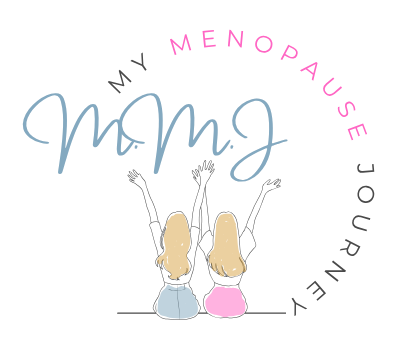My Unexpected Menopause Journey with Depression

“I Feel Depressed, But I’m Not Depressed”
There was a day I’ll never forget. I was driving home from work, and suddenly the tears just started flowing. No obvious reason, no crisis or bad news—just a heavy wave of sadness crashing over me. I remember gripping the steering wheel and wondering why I was crying so much, why I felt so down all the time.
You see, I’ve struggled with depression before, so at first I thought that’s what this was. But even though it felt similar—deep sadness, emptiness, wanting to cry all the time—it also felt different. I wasn’t overwhelmed by negative thoughts or self-loathing like before. Instead, I felt flat, numb, like someone had taken all the colour out of my world.
At work, I became hyper-sensitive. Small things that never used to bother me suddenly made me tear up or feel overwhelmed.
I’d find myself holding back tears in meetings or going to the bathroom just to cry alone. When I came home, the sadness didn’t lift. I would slump on the couch, feeling tired and empty. It was exhausting.
One evening, after yet another day of this emotional rollercoaster, I walked through the door and into our bedroom, looked at my wife and said quietly, “I feel depressed… but I’m not depressed.” I wasn’t sure what else to say. She held my hand and we wondered together if this could be something else — could it be part of perimenopause?
I knew I was at the beginning of perimenopause, but my understanding of what that was, was limited to hot flashes, night sweats, and irregular periods. I never imagined it could feel like this — this constant, confusing emotional heaviness.
So I decided to do something about it. I called Menopause Australia and spoke with a doctor. I shared everything—the crying, the sadness, the flatness, the irritability. The doctor listened with empathy and told me what I was starting to suspect: this was part of perimenopause, the phase before menopause when hormones are fluctuating wildly, wreaking havoc on mood and emotions.
That conversation was a turning point. I started hormone replacement therapy (HRT) soon after, and slowly but surely, things began to change. The tears became less frequent. The fog lifted. I started to feel like myself again—lighter, calmer, more connected.
Menopause isn’t just about the physical symptoms. For many of us, it’s an emotional storm that hits hard and often unexpectedly. And when those feelings mimic depression, it can be confusing and frightening. But it’s important to remember it’s not just “in your head.” Your body is changing, and your hormones are powerful players in your emotional health.
If you’re reading this and find yourself in that confusing space—feeling down, crying for no clear reason, wondering if you’re “really” depressed—please know you’re not alone. And it’s okay to ask for help. Talk to your doctor, reach out to support services like Menopause Australia, and connect with others going through the same journey.
Understanding that your mood changes might be linked to menopause was the first step in reclaiming my wellbeing. And I want you to know there is hope, support, and solutions to help you feel like yourself again.
You deserve to feel vibrant, joyful, and whole—no matter what stage of life you’re in.
Written by Shan 46
